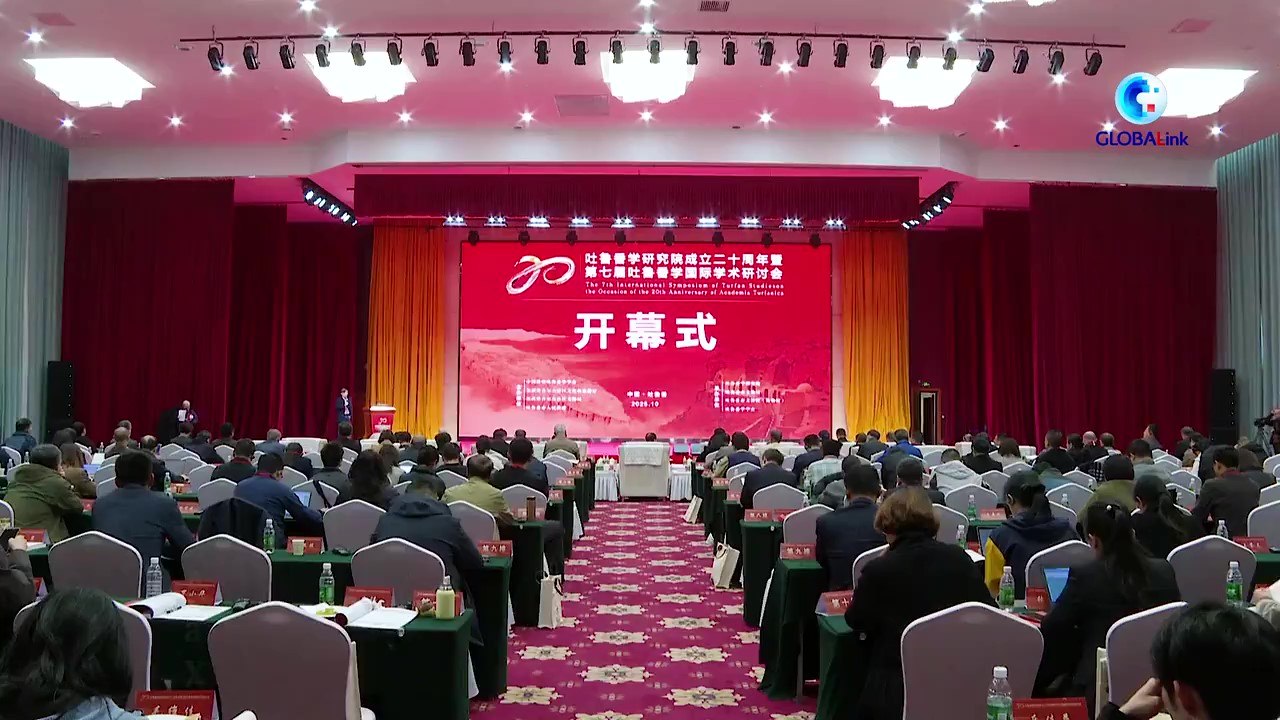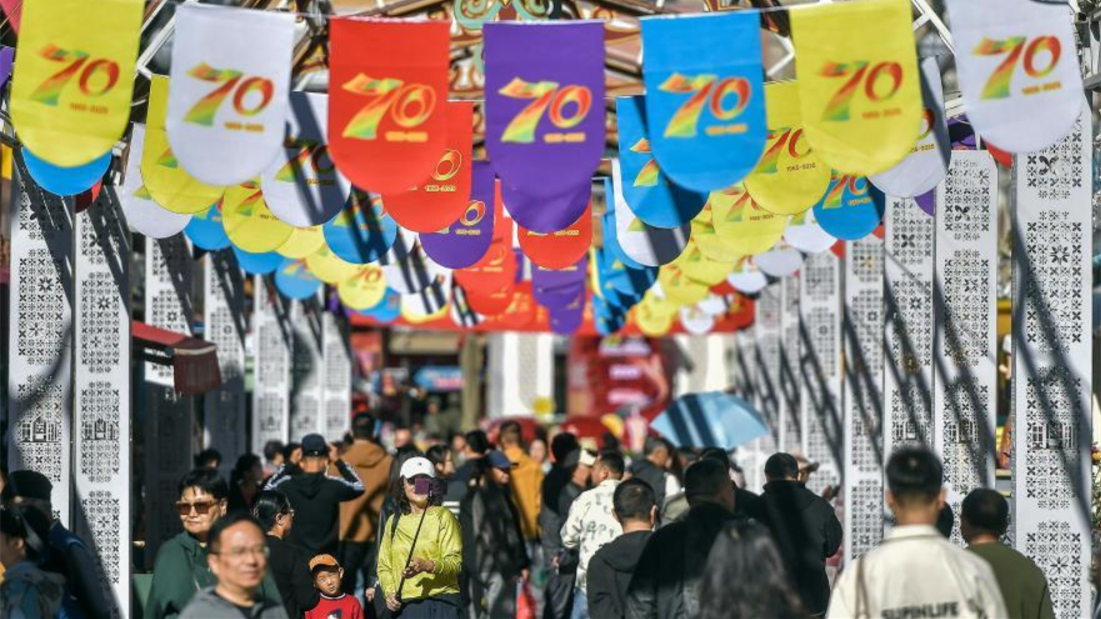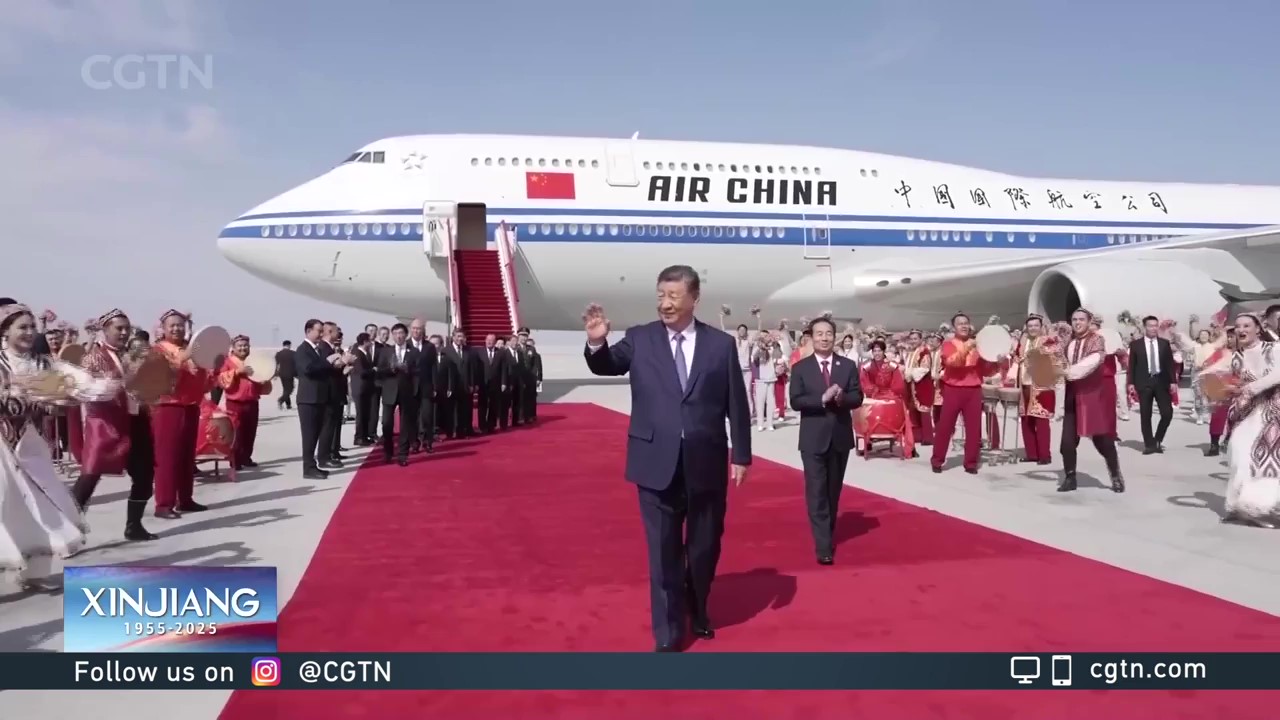A delegation of consular corps and business communities based in the Hong Kong Special Administrative Region (HKSAR) recently wrapped up a visit to northwest China's Xinjiang Uygur Autonomous Region, a visit organized by the Commissioner's Office of the Chinese Foreign Ministry in the HKSAR to boost exchanges between Hong Kong and Xinjiang.
For many in the group, the first-hand experience of Xinjiang deepened their understandings. "Seeing is believing," several delegates said, describing the region as more vibrant than they had anticipated. Their goal now, they added, was to find ways to enhance cooperation between Xinjiang and Hong Kong.
Each of Xinjiang's cities visited has its own character -- Urumqi's modern ease, Kashgar's special charm, Yining's diverse spirit -- like colorful ethnic costumes, consuls, chamber of commerce leaders and multinational company executives told Xinhua.
The trip, they said, gave them a tangible sense of the region's vastness, richness and energy -- insights they hope to use to connect Hong Kong's resources to Xinjiang's growth.
In October, Xinjiang is draped in autumn colors, and the delegation's stops highlighted the region's natural and cultural appeal. At Tianchi Lake, a glacial basin in Changji Hui Autonomous Prefecture ringed by snow-capped mountains, delegates captured the view with cameras.
"Xinjiang lives up to its reputation for beauty," said Nur'Amirah Mohamad, a consul of the Consulate General of Malaysia in Hong Kong, visiting Xinjiang for the first time. She snapped photos of the lake's sparkling waters and distant peaks.
In Kashgar's ancient city, a historic district of narrow lanes and traditional architecture, the night brought a lively buzz. David Whitwam, chairman of the New Zealand Chamber of Commerce in Hong Kong, paused to watch a vendor preparing handmade yogurt shaved ice. "This is fascinating," he said, noting that visiting each city of Xinjiang was a new discovery, full of surprises.
Benjamin Sigg, co-chairman at the Swiss Chamber of Commerce in Hong Kong, focused on more modern sights: solar panels and wind turbines lining the roads. "Swiss companies should come and visit, and be more involved here," he said, citing opportunities in eco-tourism and clean energy that could benefit both Switzerland and China.
The delegates also spoke of the people they met. "Locals greet you with smiles, they sing, they dance, they're as sweet as Hami melons," said Joji Lopez Hui, a member of the Philippines Chamber of Commerce in Hong Kong.
For Shah Mohammad Tanvir Monsur, Bangladeshi consul general in Hong Kong, Kashgar's ancient streets evoked imaginations of the Silk Road. Walking past textile stalls and food vendors, he said, "This is what the old Silk Road's trade must have felt like. The way people of different ethnicities and religions live harmoniously together -- this is the real Xinjiang."
George Leung, CEO of SCOR Reinsurance Company (Asia) Limited., offered a long-term perspective. Over 20 years ago, he recalled, there were no direct flights from Hong Kong to Xinjiang. Travel required time-consuming transfers. Now, the flight takes just over four hours, popular scenic spots are easy to reach.
"Infrastructure is better, the region is more dynamic, and more of its beauty is being discovered," he said. "It's becoming more attractive to everyone."
Beyond scenery and culture, the delegation also focused on Xinjiang's role as a transport and trade hub and how it might work with Hong Kong's global platform. As a core area along the Silk Road Economic Belt, Xinjiang showcases its strategic importance at the Horgos Port, a cross-border economic zone on the China-Kazakhstan border. In 2024, the port handled more than 45 million tons of imports and exports.
Naser S A SH Alghanim, consul general of Kuwait in Hong Kong, praised when being told that clearance time is now cut to just 15 minutes with high technologies. "Drivers don't even need to get out of their trucks," he was told.
Hong Kong's links to Xinjiang are already growing. In April 2025, Cathay Pacific launched four weekly direct flights between Hong Kong and Urumqi, and its parent company, Swire Group, was discussing adding more.
James Tong, director of group public affairs at John Swire & Sons (HK) Limited., said he hoped the "Air Silk Road" would boost travel and the flow of local specialties between the two regions. For freight, Cathay plans to use its expertise in cold chain logistics and high-value cargo to build a route connecting Central Asia, via Xinjiang, to Hong Kong -- and from there to Southeast Asia and the rest of the world.
During the trip, the delegates spotted other potential partnerships. At a dairy factory in Yining, Whitwam suggested pairing New Zealand's milk production expertise with Xinjiang's local dairy products to create options for people with lactose intolerance -- with Hong Kong acting as a bridge.
Tony Ho, director of the Indonesian Chamber of Commerce in Hong Kong, highlighted tripartite opportunities between Indonesia, Hong Kong and Xinjiang, particularly in digital economy, solar energy and mineral development, and was planning to explore ore processing collaboration.
As the trip wrapped up, some delegates doubled back to Kashgar to visit the Pamir Plateau in southern Xinjiang. For anyone eager to experience Xinjiang's beauty and opportunities firsthand, Monsur had a straightforward take: "All you need is a plane ticket."




.png)
.png)
.png)


.png)
.png)
.png)
.png)
.jpg)
.png)
.jpg)
.png)



.png)
.jpg)
.jpg)

.jpg)

.png)